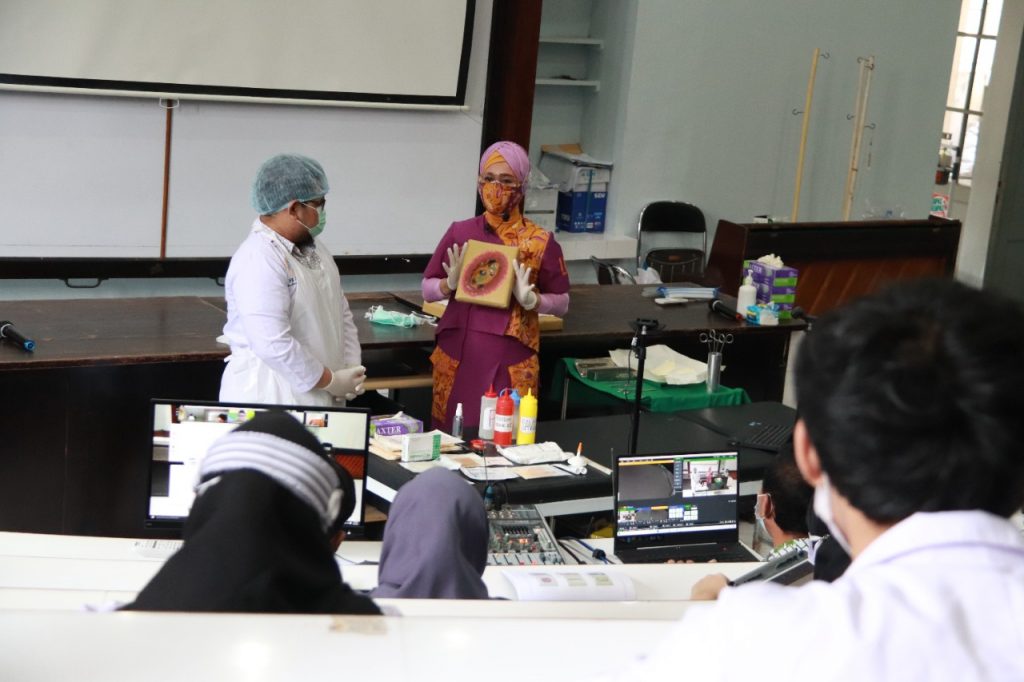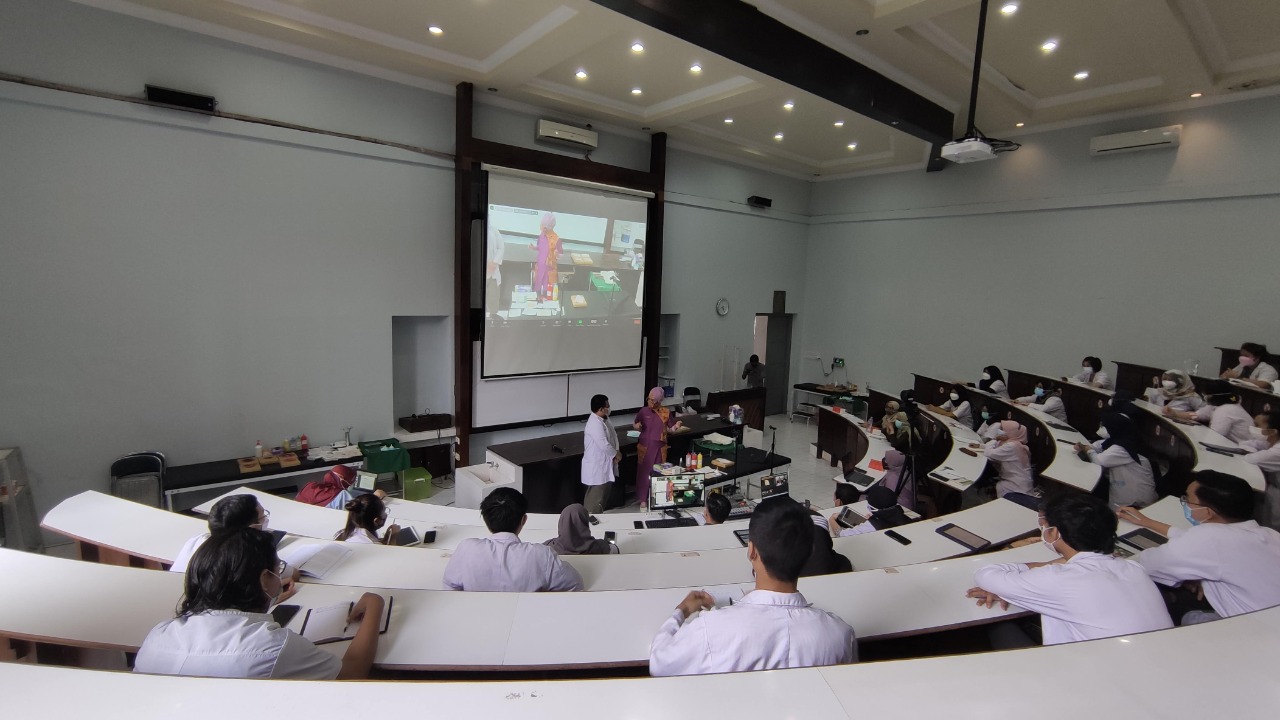UNAIR NEWS- Responding to the Indonesian Government’s evaluation of on learning system during the pandemic, Universitas Airlangga (UNAIR), through the Director of Academic Affairs issued a circular (SE) on the implementation of the 2021/2022 Odd Semester teaching and learning process. The circular was issued as a form of UNAIR’s effort to ensure Quality Education, Reduces Inequalities, and Good Health and Well-Being for all members of UNAIR academic community.
UNAIR, through SE Number 3140/UN3/PK/2021 is applying three methods of teaching and learning process (PBM) at UNAIR. They are offline learning, blended/hybrid learning, and online learning.
There are slight differences between blended and hybrid systems. Blended is a combination of online and offline systems in one course, while hybrid is a combination of online and offline systems in one meeting.
In general, offline lectures are conducted only for subjects with affective and psychomotor domain learning outcomes. Blended/hybrid lectures are conducted for subjects with learning outcomes in the cognitive domains of application, analysis, evaluation, and creation, as stated by UNAIR Director of Academic Affairs, Prof. Dr Sukardiman, M.S., Apt.
Special requirements for offline and blended/hybrid lectures
- 1. The standard halls used for lectures must have adequate space, and good air circulation.
- 2. Classrooms must be arranged with a minimum distance of 1.5 meters and a maximum of 50 percent of the room’s intended capacity.
- 3. The schedule arrangement must pay attention to the time gap between lectures to avoid the accumulation of students and, if possible, provide a transit room.
- 4. The arrangement of in and out flow of students is made to avoid crowds.
- 5. There is an additional installation of a camera and an LCD or PC to facilitate students taking online lectures.

Offline practicum
In general, offline practicum procedures are the same as offline lectures with the following additional conditions:
- 1. Laboratory service procedure includes preparation of laboratory/studio and vigilance.
- 2. Monitoring and recording activities (tracing) places visited and people met.
- 3. Using a mask and consistently applying the cough/sneeze etiquette and Clean and Healthy Living Behaviour (PHBS).
- 4. Washing hands and rinsing the mouth after going out or meeting someone.
- 5. Cleaning and disinfecting doorknobs and places frequently touched by people.
- 6. Do not share the use of mice, keyboards, headsets, tablets, touchpads, etc. If forced to do so, be sure to wipe and disinfect the utensils after use.
Blended/hybrid practicum
- 1. Blended/hybrid learning is carried out for subjects with learning outcomes in the cognitive domains of C3 (Application), C4 (Analysis), C5 (Evaluation), and C6 (Creation).
- 2. Practical activities with learning outcomes to acquire specific skills or skills that need and must be done in the laboratory can be carried out on campus with a special schedule referring to the offline practicum.
- 3. The online aspect of the blended/hybrid practicum can use simulation media/virtual media or video conferencing /video tutorials integrated with UNAIR’s e-learning.
Exam implementation
- 1. The implementation of mid-term (UTS) and finals (UAS) is carried out offline.
- 2. The procedure for conducting offline examinations refers to the implementation of offline lectures.
- 3. The procedure for conducting the offline practicum examination refers to the offline practicum implementation.
Preparation of final project, thesis, master’s thesis, and dissertation
- 1. The supervision process of the final project/thesis /master’s thesis/dissertation guidance module is in Cybercampus version two (v2).
- 2. Students in the process of their final project/thesis /master’s thesis/dissertation can collect and process data/research online and/or offline following the supervisor’s direction.
- 3. Students who carry out data collection and processing/research offline in the laboratory can refer to procedures for laboratory/studio services. (*)
Author: Sandi Prabowo
Editor: Binti Q. Masruroh (AC/AP)





